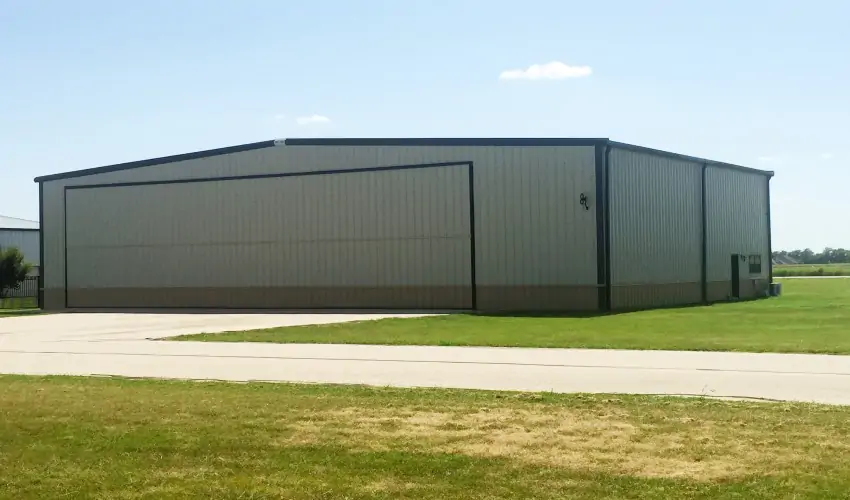
Steel is a fundamental material in the construction of industrial buildings, offering unmatched strength, flexibility, and durability. With various types of steel available, choosing the right kind for your industrial metal buildings can significantly impact their performance and longevity.
This guide explores the different types of steel used in industrial steel structures, helping you understand their applications and benefits.
1. Carbon Steel
Carbon steel is one of the most commonly used types of steel in industrial buildings. It is categorized based on carbon content, which affects its strength and flexibility:
- Low Carbon Steel (Mild Steel): Containing up to 0.3% carbon, this type of steel is known for its good weldability and machinability. It is often used in the structural framework of industrial buildings, such as support beams and columns.
- Medium Carbon Steel: With a carbon content ranging from 0.3% to 0.6%, medium carbon steel provides a balance between strength and ductility. It is suitable for components that need higher strength, such as machinery parts and structural elements.
- High Carbon Steel: High carbon steel, with 0.6% to 1.0% carbon, offers superior hardness and strength but is less ductile and harder to weld. It is used for applications requiring high wear resistance, like industrial tools and high-strength structural components.
2. Alloy Steel
Alloy steel is enhanced by adding elements like chromium, nickel, or molybdenum, which improve its properties:
- Chromium Steel: Chromium enhances corrosion resistance and hardness. It is ideal for environments exposed to corrosive substances, making it suitable for chemical processing facilities and industrial buildings with high exposure to moisture.
- Nickel Steel: Adding nickel increases toughness and impact resistance. This type of steel is used in structures and equipment that experience high stress and impact, such as heavy-duty machinery and support frameworks in industrial buildings.
- Molybdenum Steel: Molybdenum improves strength and resistance to wear and corrosion. It is commonly used in high-strength applications, including components in heavy industrial machinery and high-temperature environments.
3. Stainless Steel
Stainless steel is prized for its excellent corrosion resistance, which makes it ideal for industrial settings exposed to moisture or chemicals:
- Austenitic Stainless Steel: This type of stainless steel offers excellent corrosion resistance and is used in environments where good formability is required. It’s commonly used in industrial buildings that handle food processing or chemical storage.
- Ferritic Stainless Steel: Ferritic stainless steel provides good resistance to stress corrosion cracking and high-temperature stability. It’s used in applications like exhaust systems and other high-temperature industrial components.
- Martensitic Stainless Steel: This steel combines hardness and strength with moderate corrosion resistance. It’s utilized for applications needing high strength and wear resistance, such as turbine blades and industrial tools.
4. Structural Steel
Structural steel is specifically designed for use in construction, including industrial buildings:
- I-Beams and H-Beams: These beams are crucial for creating the structural framework of industrial steel structures. They offer high load-bearing capacity and are commonly used in building frames and support structures.
- Channel Sections: Used in secondary framing and bracing, channel sections provide additional support and stability in industrial buildings.
- Angle Iron: Angle iron is employed in various structural applications, such as bracing and support for frames and industrial equipment.
5. High-Strength Low-Alloy (HSLA) Steel
HSLA steel is designed to provide better mechanical properties and resistance to atmospheric corrosion compared to carbon steel. It is used in applications requiring high strength and durability, such as in bridges and large industrial structures.
Conclusion
Understanding the different types of steel used in industrial buildings is essential for selecting the right material for your needs. Each type of steel offers unique properties that make it suitable for various applications in industrial metal buildings. From carbon steel’s versatility to stainless steel’s corrosion resistance, choosing the appropriate steel ensures the safety, efficiency, and longevity of your industrial steel structures.